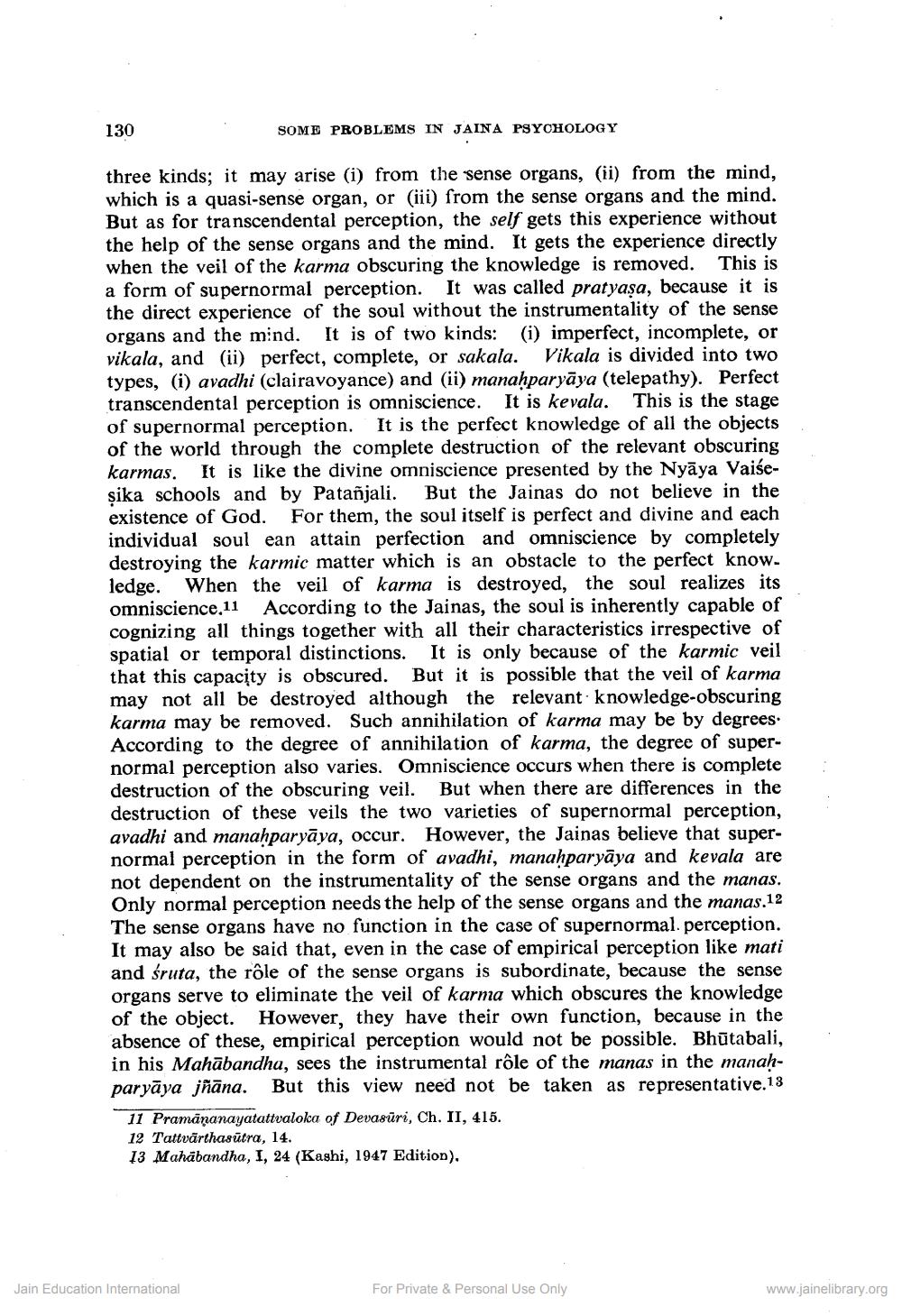________________
130
SOME PROBLEMS IN JAINA PSYCHOLOGY
three kinds; it may arise (i) from the sense organs, (ii) from the mind, which is a quasi-sense organ, or (iii) from the sense organs and the mind. But as for transcendental perception, the self gets this experience without the help of the sense organs and the mind. It gets the experience directly when the veil of the karma obscuring the knowledge is removed. This is a form of supernormal perception. It was called pratyaşa, because it is the direct experience of the soul without the instrumentality of the sense organs and the mind. It is of two kinds: (i) imperfect, incomplete, or vikala, and (ii) perfect, complete, or sakala. Vikala is divided into two types, (i) avadhi (clairavoyance) and (ii) manaḥparyāya (telepathy). Perfect transcendental perception is omniscience. It is kevala. This is the stage of supernormal perception. It is the perfect knowledge of all the objects of the world through the complete destruction of the relevant obscuring karmas. It is like the divine omniscience presented by the Nyāya Vaisesika schools and by Patañjali. But the Jainas do not believe in the existence of God. For them, the soul itself is perfect and divine and each individual soul ean attain perfection and omniscience by completely destroying the karmic matter which is an obstacle to the perfect know. ledge. When the veil of karma is destroyed, the soul realizes its omniscience.11 According to the Jainas, the soul is inherently capable of cognizing all things together with all their characteristics irrespective of spatial or temporal distinctions. It is only because of the karmic veil that this capacity is obscured. But it is possible that the veil of karma may not all be destroyed although the relevant knowledge-obscuring karma may be removed. Such annihilation of karma may be by degrees. According to the degree of annihilation of karma, the degree of supernormal perception also varies. Omniscience occurs when there is complete destruction of the obscuring veil. But when there are differences in the destruction of these veils the two varieties of supernormal perception, avadhi and manahparyāya, occur. However, the Jainas believe that supernormal perception in the form of avadhi, manahparyāya and kevala are not dependent on the instrumentality of the sense organs and the manas. Only normal perception needs the help of the sense organs and the manas. 12 The sense organs have no function in the case of supernormal. perception. It may also be said that, even in the case of empirical perception like mati and śruta, the role of the sense organs is subordinate, because the sense organs serve to eliminate the veil of karma which obscures the knowledge of the object. However, they have their own function, because in the absence of these, empirical perception would not be possible. Bhūtabali, in his Mahābandha, sees the instrumental role of the manas in the manahparyāya jñāna. But this view need not be taken as representative.13
11 Pramananayatattvaloka of Devasūri, Ch. II, 415. 12 Tattvärthasūtra, 14. 13 Mahabandha, I, 24 (Kashi, 1947 Edition).
Jain Education International
For Private & Personal Use Only
www.jainelibrary.org




